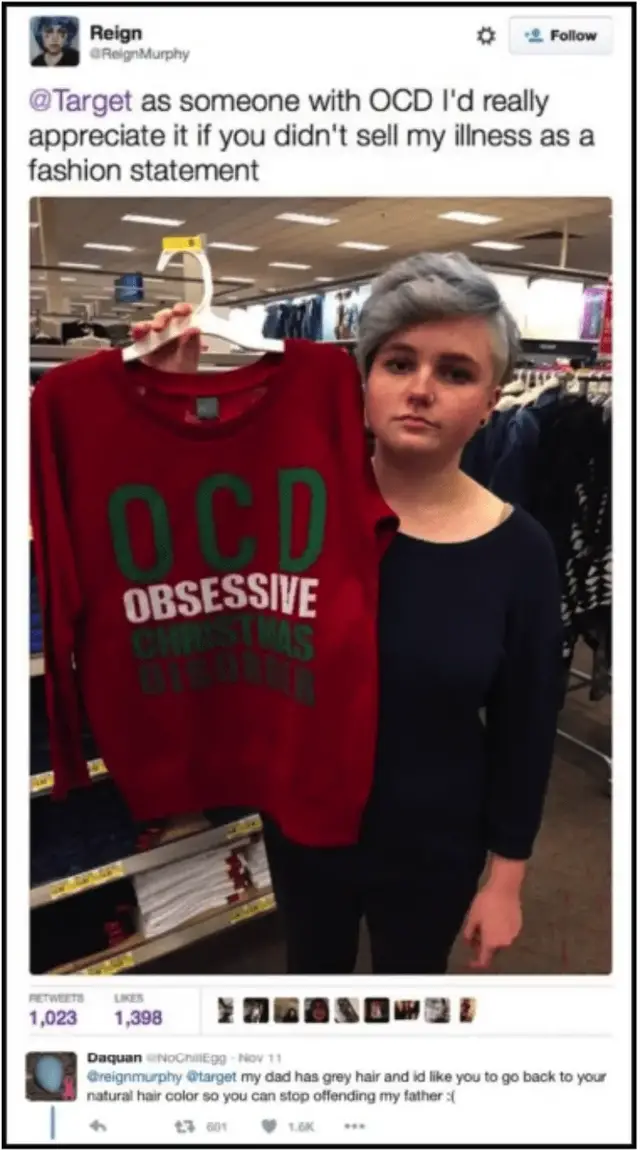Target recently faced criticism over a holiday sweater emblazoned with the phrase “OCD Obsessive Christmas Disorder,” which some customers found offensive for making light of obsessive-compulsive disorder.

One customer of Target, Reign Murphy, who suffers from OCD, expressed her dismay on Twitter by sharing a photo of the sweater and stating, “As someone with OCD I’d really appreciate it if you didn’t sell my illness as a fashion statement.”
The tweet garnered significant attention, with many agreeing that the sweater trivialized a serious mental health condition. However, others felt the message was harmless and not intended to offend.

In response to the backlash, Target spokesperson Jessica Carlson apologized to those offended but confirmed that the retailer had no plans to remove the sweater from its stores.
This incident is not the first time Target has faced criticism over its merchandise. Previously, the retailer was scrutinized for selling shirts with labels such as “bride,” “trophy,” and “Mrs.,” which some customers felt were demeaning to women.
The controversy highlights the ongoing debate over the sensitivity of marketing strategies and the importance of considering the impact of product messaging on all customers.
